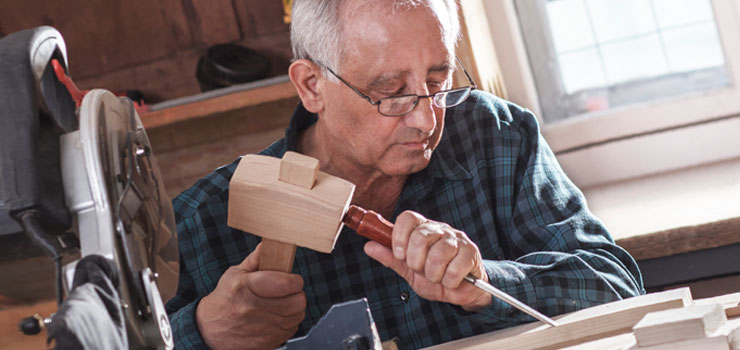The bigger question is: where are all the tradespeople going to come from?
In Canada we may see a shortfall of one million workers by 2020 due primarily to an aging population and declining birth rates. As Baby Boomers gear up for retirement, there simply aren’t enough of the next generation to fill those vacant jobs.
Would you believe me if I told you that employers have identified Skilled Trades as the number one most difficult job to fill today in Canada? Engineers are number six on that list1. The same is true in the U.S.
Politicians would have you believe that we are on the path toward a “knowledge economy.” That may be true, but don’t let that confuse the issue at hand: trade skills are in demand now, and will be even more so in the next decade.
Some 40% of new jobs in this country in the coming years will be in skilled trades and technology—twice the ratio held in 1998, according to Skills Canada.
The average age of a tradesperson in Canada was 40 in 2007, four years older than it was in 1987. It’s even older in a few specific fields, with the average age of welders at 56, and framers and finishers being in their 50s on average. Although retirement is coming later for many, it’s easy to see where this trend is heading.
Colleges, trades associations and government have for over a decade tried to right the course and drive greater interest in skilled trades; however, as a community we need to nip a few misconceptions in the bud. The long term health of our industry requires that we do more.
Studies have shown that while young people are often open to careers in the skilled trades, they are dissuaded by parents, educators and friends who perpetuate the stigma associated with such jobs.
According to a recent Canadian Apprenticeship Forum and Skills Canada poll conducted by Ipsos-Reid:
- 42% of Canadian youth claim they are unlikely to consider a career in the skilled trades
- 67% of youth and 55% of adults would choose university as the first post-secondary option
- 26% of youth said they would consider a career in the trades
- 60% of youth said their parents have not encouraged them to consider a career in trades
- 71% of youth said guidance counsellors have not encouraged them to consider a profession in skilled trades
We need to break the bad habits many have developed of devaluing the trades, apprenticeships and college educations. Let’s start by looking at (and correcting) a few myths and misconceptions about careers in the skilled trades:
Myth #1 – There are more opportunities for university-educated workers – The very skill shortage being discussed shows how false this is. In fact since the ’90s, even when hit hard by recession, trade employment has grown slightly faster than non-trades, according to Statistics Canada.
Myth #2 – You make more money with university experience – A few select university-schooled professionals—such as doctors and lawyers—can boast the earnings on which this myth is based. The truth, however, is that studies suggest tradespeople across Canada generally earn salaries of around 6% more than the national average of all careers.2 (And that includes the country’s doctors.)
In addition to earning more than average, training in skilled trades (often paid apprenticeship) means that most workers aren’t saddled by student debt.
Myth #3 – Smart kids go to university – This is one of the biggest myths to continue to be perpetuated. Think of the advanced techniques and high technology that have become a part of a tradesperson’s toolbox. Successful tradesmen and tradeswomen require a solid grounding in math, analytical skills, literacy, the ability to solve complex problems, understand and analyze countless situations.
Many tradespeople have some post-secondary education. Provincial requirements, in fact, set standards that make post-secondary education more common in some fields (like plumbing) than that of the general population.
Myth #4 – The trades are for men – While it’s not a myth that most workers in the skilled trades are currently men (97% in 2007), this assertion that the trades are for men is patently false. It is no different than the past biases against women in science and technology fields. It exists, but we need to do everything we can to eliminate it. This kind of old-school thinking obviously can’t help us get ahead in the years to come.

Here’s my challenge to you; when you are sitting with your sons and daughters, ask them if they’ve ever considered a career in the trades? If they haven’t, they should. A good personal friend of mine in the construction trades industry recently commented to me about this subject. “The skilled trades people of tomorrow will earn the doctor’s salaries of today.” The opportunity for entrepreneurial-minded individuals in the trades segment over the next few decades is staggering. I’m betting in the near future that’s where the money’s going to be.
References
